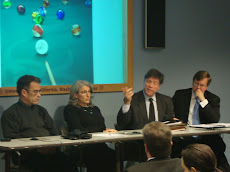Children, which the 2009 H1N1 pandemic infection appeared to disproportionately affect, were not associated with more hospital admission or pneumonia cases when compared with seasonal H1N1 or H3N2, said the study. Within thirty days of infection, six out of 395 children with the 2009 H1N1 virus, or 1.5 percent, were admitted to hospital, compared to five of 135 with seasonal H1N1 (3.7 percent) and eight of 255 with the H3N2 virus (3.1 percent).
For adults six out of 150 with 2009 H1N1 or 4.0 percent went to hospital, compared to 17 out of 377 cases of H3N2, or 4.5 percent.
"Our results suggest that the clinical manifestations and risk of hospital admission are similar for 2009 H1N1 and other seasonal influenza A strains," said the study's authors.
"The perceived severity of symptoms and risk of serious outcomes (pneumonia or hospital admission) were not increased," they added.According to Finland's YLE, The narcolepsy rate appears to be at least ten times normal after swine flu vaccination, and may be higher still given the narrow age range of 5 to 15 years reported from Finland. On average, 3 cases are diagnosed in Finland annually, but 12-14 cases have been detected there with onset between last December and February.
What other neurological (or other types of) disorders might also be occurring as a result of last year's flu vaccines? It is relatively easy to identify increased rates of rare but extremely serious diseases, especially when the rate may have spiked ten-fold. It is much harder to identify increased rates of more common or less severe diseases that may result after vaccinations. What epidemiological efforts are being made to do so?
The Chicken Littles (flu experts) continue to exhort us to not let our guard down despite the overblown fears of swine flu: avian flu "could spark the next global outbreak." Speaking to reporters on the sidelines of a flu conference in Hong Kong, Robert Webster warned against complacency:
We may think we can relax and influenza is no longer a problem. I want to assure you that that is not the case," said Webster, chairman of the virology and molecular biology department at St. Jude Children's Research Hospital in Memphis, Tennessee.
Webster predicted that the next pandemic could be sparked by a virus that spreads from water fowl to pigs and then onto humans — such as the H5N1 strain of bird flu, which has killed 300 people over the past seven years. He noted that after several years of decline, the number of bird flu cases in humans increased in 2009, lifted by an uptick of cases in Egypt.










No comments:
Post a Comment